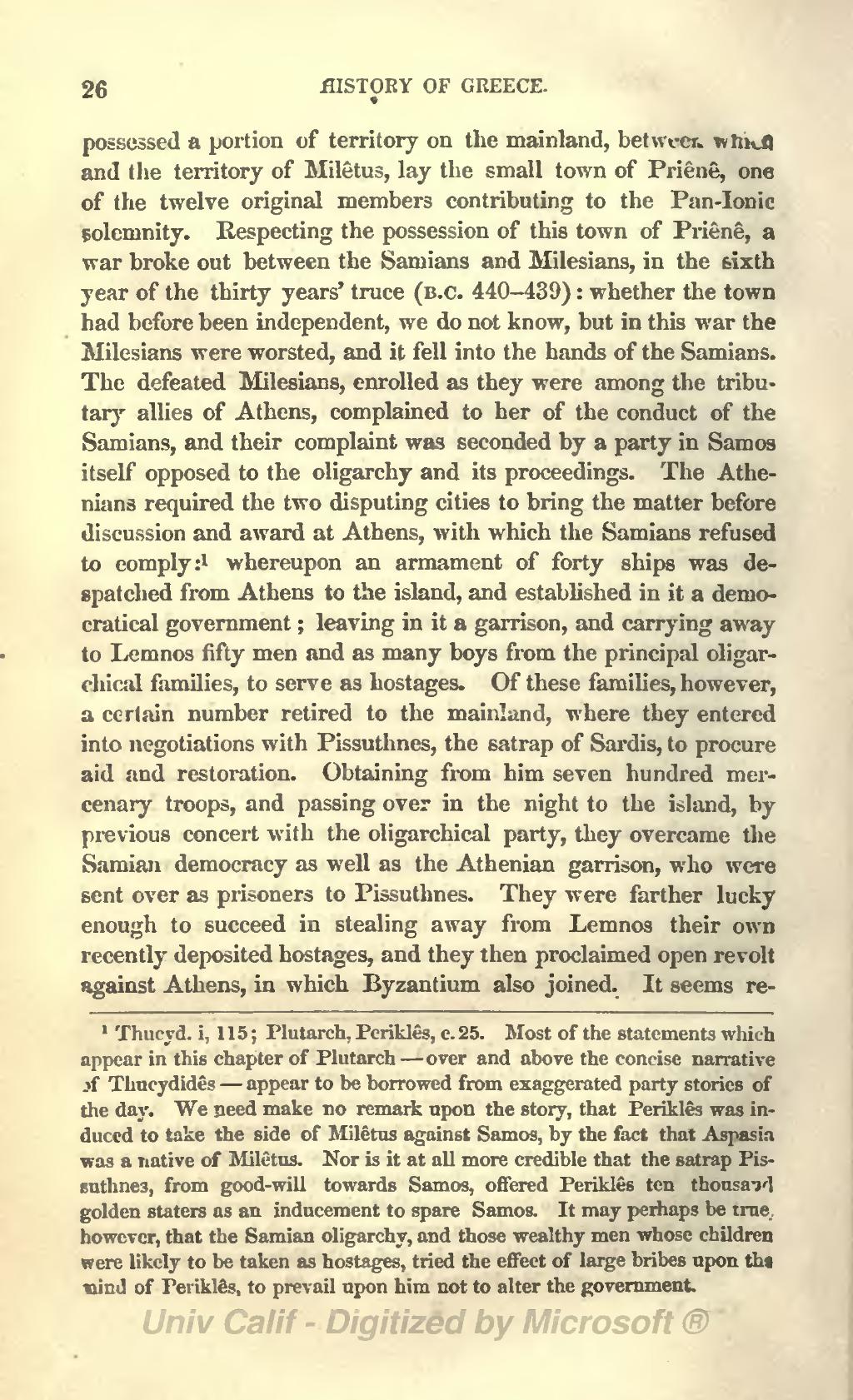possessed a portion of territory on the mainland, between which and the territory of Milêtus, lay the small town of Priene, one of the twelve original members contributing to the Pan-Ionic solemnity. Respecting the possession of this town of Priene, a war broke out between the Samians and Milesians, in the sixth year of the thirty years' truce (B.C. 440-439): whether the town had before been independent, we do not know, but in this war the Milesians were worsted, and it fell into the hands of the Samians. The defeated Milesians, enrolled as they were among the tributary allies of Athens, complained to her of the conduct of the Samians, and their complaint was seconded by a party in Samoa itself opposed to the oligarchy and its proceedings. The Athenians required the two disputing cities to bring the matter before discussion and award at Athens, with which the Samians refused to comply:[1] whereupon an armament of forty ships was despatched from Athens to the island, and established in it a democratical government; leaving in it a garrison, and carrying away to Lemnos fifty men and as many boys from the principal oligarchical families, to serve as hostages. Of these families, however, a certain number retired to the mainland, where they entered into negotiations with Pissuthnes, the satrap of Sardis, to procure aid and restoration. Obtaining from him seven hundred mercenary troops, and passing over in the night to the island, by previous concert with the oligarchical party, they overcame the Saurian democracy as well as the Athenian garrison, who were sent over as prisoners to Pissuthnes. They were farther lucky enough to succeed in stealing away from Lemnos their own recently deposited hostages, and they then proclaimed open revolt against Athens, in which Byzantium also joined. It seems re-
- ↑ Thucyd. i, 115; Plutarch, Perikles, c. 25. Most of the statements which appear in this chapter of Plutarch — over and above the concise narrative of Thucydides — appear to be borrowed from exaggerated party stories of the day. We need make no remark upon the story, that Perikles was induced to take the side of Miletus against Samos, by the fact that Aspasia was a native of Miletus. Nor is it at all more credible that the satrap Pissuthnes, from good-will towards Samos, offered Perikles ten thousand golden staters as an inducement to spare Samos. It may perhaps be true however, that the Samian oligarchy, and those wealthy men whose children were likely to be taken as hostages, tried the effect of large bribes upon the mind of Perikles, to prevail upon him not to alter the government.
